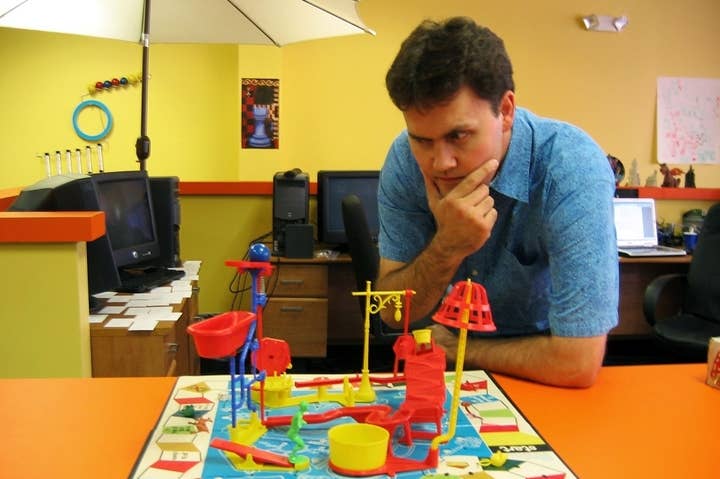Serious games stigmatized in and out of the industry, says Schell
Serious Play Conference keynoter Jesse Schell says games that change are the fastest growing part of the industry, but run into perception problems
The rise of smartphones and tablets is providing a platform for more than just free-to-play games. Schell Games founder Jesse Schell says it's also making serious games the fastest growing part of the industry, even if people don't always recognize that. Schell, who was today named as a keynote presenter for the 2013 Serious Play Conference, spoke with GamesIndustry International yesterday about perception problems the field is facing.
"Oh sure," Shell said when asked if serious gaming carried a stigma. "First of all, they're really hard to do well, and as a result, there are a lot of really bad ones out there. On top of that, there's often a kind of inauthenticity that surrounds these kinds of games. They make promises about taking this boring thing and making it fun, but if they fail, you just go, 'This really is bad.'... Teaching is really hard. Making an entertaining game is really hard. And now we're proposing that we're going to do both of them simultaneously. It's like doing stunt riding on a motorcycle and juggling, and now I'm going to do them at the same time. And hey, you screwed up, because it's really hard. But when you do it right, it's frickin' amazing!"
It doesn't help that serious games is an often misunderstood corner of an often misunderstood medium, Schell said.
"Even to this day, you're at a party and people ask what you do. You say, 'I'm a game developer,' and they say, 'Do you make those really violent games?' It would be like if everybody who made movies when they said, 'I make movies,' people said, 'Oh, like pornography? Is that what you make?' It's kind of like that," Schell explained.
That problem has been compounded by people historically misrepresenting the success they've had in the field, Schell said, and a lack of conclusive research into the effects violent games have had on children.
"The whole thing makes people nervous, because how do they know if this thing's really doing any good for anybody," Schell said.
That's one shortcoming Schell hopes to address, in part through his studio's iPad game Play Forward: Elm City Stories. Created in conjunction with Yale University, Play Forward is an educational tool created with the hope of preventing HIV infection among ethnic minority adolescents. It's also the subject of a multiyear longitudinal study to see what change, if any, there is in HIV infection rates among kids who played the game.
Although most of what Schell Games produces fits into the serious games category, Schell prefers the term "transformational games." The name is a catch-all for games that inspire change in their players, but it's a spectrum that covers everything from a game that teaches French to something like Spec Ops: The Line.
"It's not like there's some hard line between fun games and transformational games," Schell said. "It doesn't need to be a weakness; it can be a real strength. That's why people got excited about Spec Ops. It's a change that feels powerful, because that game forces you to confront what you are truly like. And when you're forced to reflect not on something external, but on what you yourself are like, it can definitely be something that promotes change in yourself, which I think is exciting."
Another issue facing serious games is the business model. Just as the conventional gaming industry has been upended by the arrival of connected mobile devices, so too is the serious gaming business.
"If you're talking about direct-to-consumer, right now it can be very difficult to sell educational or transformational games to anybody over the age of 6, at least in the American market," Schell said. "But I think we have a situation where schools are about to get an avalanche of tablets. So there's going to be this new market of selling games to schools, which will be a real market. And on top of that, you look at the way self-education is beginning to happen and more and more people are beginning to take hold of their own education. Slowly I think we see the door opening for transformational games sold direct-to-consumers."
The Serious Play Conference will take place August 20-22 at the DigiPen Institute of Technology in Redmond, Washington. In addition to Schell, the event will have a second keynote speaker in Atari founder Nolan Bushnell, who will discuss how using gaming technology can accelerate the learning process for students.

